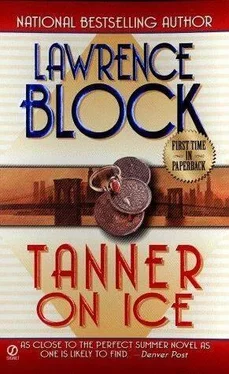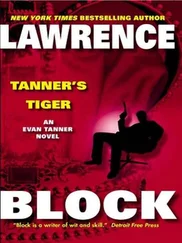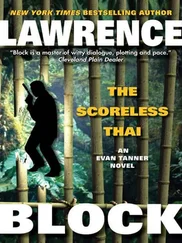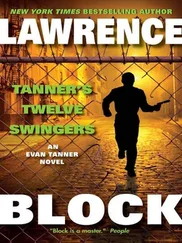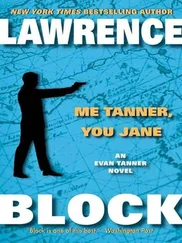When she was comfortable – or as comfortable as she was likely to get, lying out in the open wracked with malaria – I went out foraging. I found the farmhouse where the keeper of the orchard presumably lived, and I skirted it carefully, hoping my scent wouldn’t set off a canine burglar alarm. But my luck held. Either the family dog wasn’t paying attention or the family had eaten him. Whatever it was, nobody barked at me.
There were several outbuildings, and I slipped in and out of each of them. I found a heavy canvas jacket with a fleece lining, and I found a couple of reasonably clean towels, and that was all I could turn up that looked at all useful. Back in the orchard, I wrapped Katya’s feet in the towels and laid the coat over her for a blanket.
It seemed to me there ought to be something more I could do, but I couldn’t think what. There would be a village within a few miles, but it might be an hour’s walk there and an hour’s walk back, and I didn’t want to leave Katya alone that long. Suppose she woke up in a panic? Suppose the coat’s owner decided to check his fruit trees in the middle of the night? Suppose the last man-eating leopard of Burma ran into her while making his midnight rounds?
I ate some of my leftover food but made sure I saved most of it for the morning. Then I lay down at her side and did my relaxation exercises, and then I sat up and tried meditating. I suppose an accomplished monk could have meditated until the cows came home, or at least until the sun rose, but a half hour was about my limit.
I wished I had a book and a flashlight. I wished I had a Billie Holiday record and something to play it on. I wished I had a bathtub full of gin. I wished I had any sort of bathtub – that bath in the Strand had worked wonders, but the best bath in the world can only deal with the dirt of the moment. Once you dry off and go back out into the world, you get dirty all over again. I had dried off a long time ago, and I’d shared a jail cell with an unrepentant durian eater and a boat with a load of dried fish, and I’d sweated my way down the hot and humid and dusty roads of central Burma. My red robes were pretty filthy, and so was I.
She was a lot better in the morning. Her fever had broken during the night, and her robes were wet with perspiration. I spread them out in the sun to dry while she wore the farmer’s canvas coat. When I brought her the robes – drier, and somewhat aired out – she wrinkled her nose at them. But she got dressed, and we ate our breakfast and got on our way.
“So that’s what it’s like,” I said.
“Malaria? That is what it is like.”
“It can’t be much fun.”
“It is always bad in the evening and not so bad in the morning. It may be different for different people, and with different strains of the disease. The good thing is that I know it will not kill me. When I first came down with it I did not know that, because it does kill some people, you know, so how could I be sure I was not to be one of them? I had never felt so bad in my life, Evan, and I was afraid I was dying, and the fear made it all so much worse.”
“Fear does that.”
“Yes. But I did not die the first time, and I feared it less from then on. And it was not so bad. When you know you will be all right, then it is not so bad.” She smiled. “If it does not kill you early on, then it will probably never kill you. Unless, you know, you develop other problems. If your heart is bad, or you are weakened with age. But I think my heart is good, and I am not so old, am I?”
“Not old at all.”
“But it is still not eating outdoors.” That threw me, until we worked it out – she was saying it was no picnic, and I couldn’t argue the point.
The next village turned out to be a scant half hour from our orchard, and if I’d known that I’d probably have chanced walking there while Katya was sleeping off a malaria attack. It would have been something to do, but I don’t know that it would have been worth the trip. It wasn’t much of a village, really, just the Burmese equivalent of a wide place in the road.
We managed to fill our begging bowls a few times, hit up the local teahouse for a couple of cups each, and snacked on cakes of sticky rice as we resumed our walk. I’d noticed over the past several days that we were doing more uphill than downhill walking, which suggested that we were gradually gaining altitude. This morning was the first time I actually felt the difference, in that I noticed the air was a little cooler and drier, and the vegetation less tropical. We were beginning to reach the hills.
I told Katya, and she was relieved to hear it. “I know it was harder for me to walk. We seemed to be walking uphill all the time.”
“Well, we are.”
“I was afraid it might be the malaria. It makes me weaker. I’m better now, Evan, but I am still not strong. I cannot go too fast.”
“We’ll take it easy,” I said, “and we’ll stop and rest more than usual.”
“I am slowing you down, Evan, I am sorry.”
“You’re not slowing me down.”
“But of course I am! You would not have to go so slow or rest so much. And you could walk at night.”
“I’d fall on my face. I wouldn’t be able to see where I was going.”
“You could walk longer and cover more miles each day. And you would not have to pretend you had taken a vow of silence, because you would not worry that a word from me would disclose that your companion was a woman. It is much more difficult for you to be with me, Evan, and more dangerous. I am sorry I made you take me with you.”
“I’m not.”
“You must be.”
“No,” I said. “Not at all. The dumb act I put on with other people isn’t just because I’ve got you with me. I’d probably do it anyway, to cover up the fact that I can’t speak the language and I don’t know a lot about being a monk. If I opened my mouth, I’d just put my foot in it.
“And I’d go nuts without you to talk to. We can’t talk when we’re around other people, and that’s one reason I’m always in a hurry to get away from the villages and get back on the road. It doesn’t matter whether we’re speaking Russian or English.”
“Because I am not so good in either one of them, Vanya.”
“You’re fine in both. I’m glad I have you with me. And I’m very happy you’re feeling better.”
“Yes, I feel much better. But it is not over, you know. The attack.”
“I was going to ask you about that.”
“The first night is over. And the third night is not so bad, and that is usually the end of it. After that there is some weakness and soreness, but the worst of it is over.”
“The third night’s not so bad,” I echoed. “Today’s the second day, isn’t it? What’s the second night like?”
“The second night is bad,” she said.
It hit her late in the afternoon. I had hoped we’d get to the next village before the fever caught up with her. It was the most substantial way station between Bagan and Taunggyi, and I thought I might be able to find aspirin there, and possibly quinine as well. Maybe I could get her indoors; failing that, I could at least scare up something a little better in the way of blankets than an old coat and a few towels.
“We can keep walking,” she insisted. “It’s not too bad yet, Evan.”
“Promise you’ll tell me when it is.”
“I won’t have to,” she said. “I’ll fall down.”
It was hard to know what pace to set. I wanted to walk faster, in order to beat the fever to our destination, but a faster pace meant a greater strain on Katya. She needed rest breaks, but they cost us precious time. I kept second-guessing myself until I just gave up trying to figure it out, and we found our own pace and just tried to keep moving.
Читать дальше
